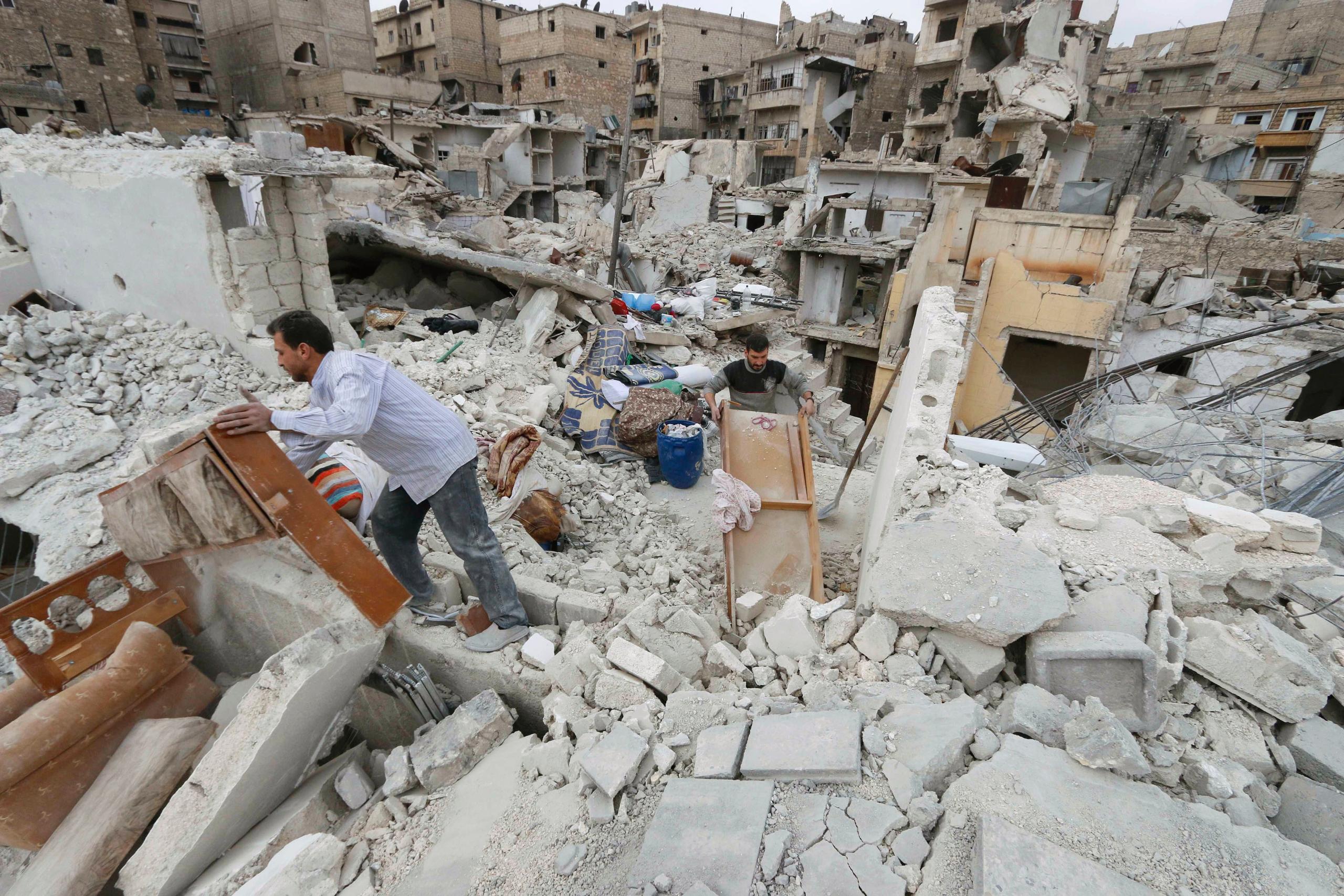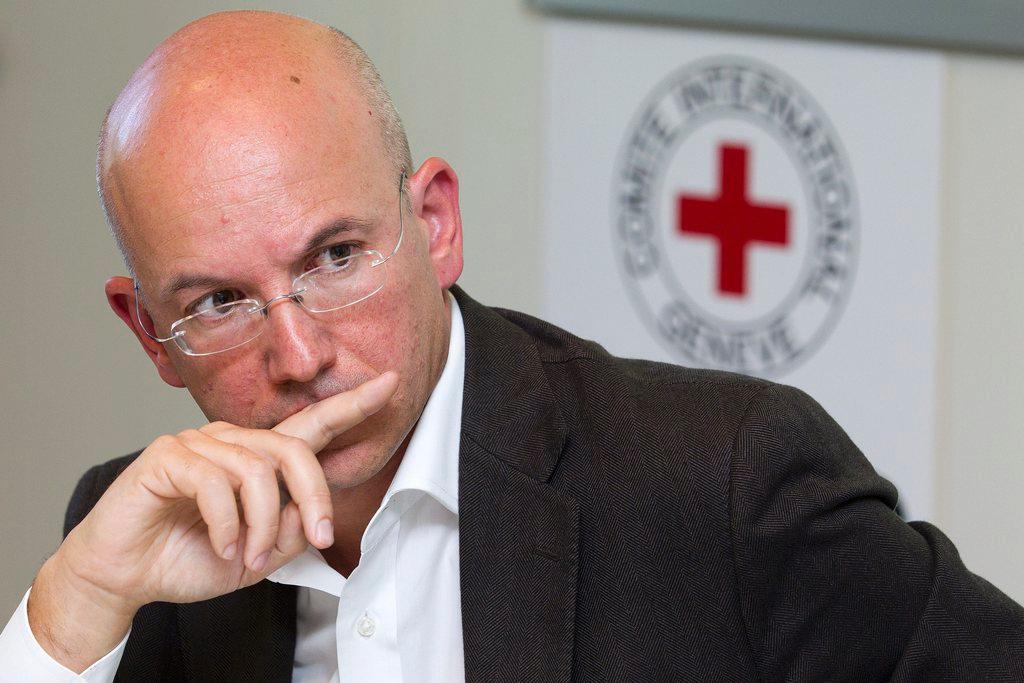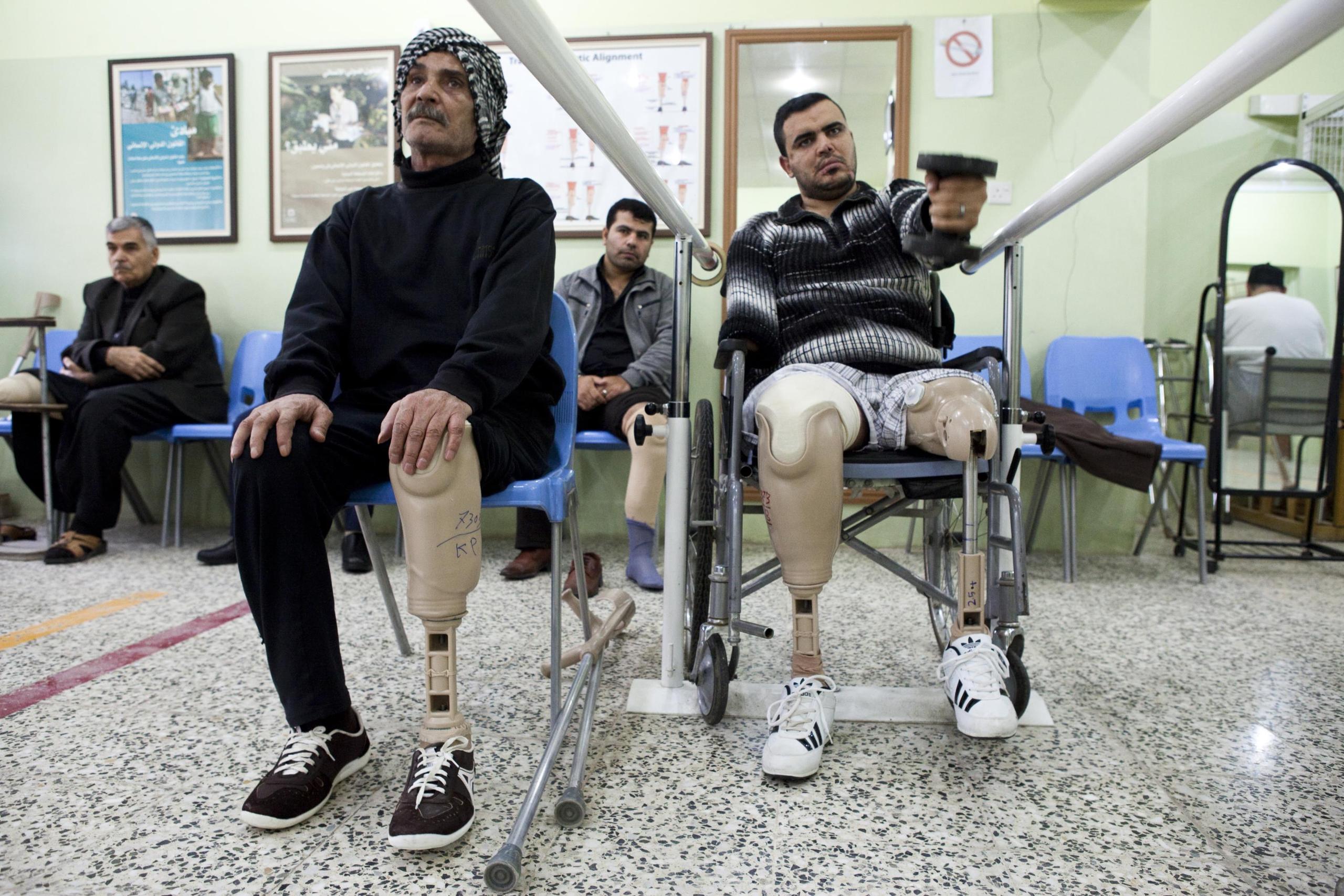
ICRC boss: more money and staff needed to tackle crises

Like many multinational organisations, the International Committee of the Red Cross (ICRC) will implement a restructuring plan next year. It will include layoffs from the Geneva headquarters in favour of moving jobs to Serbia or the Philippines.
Director General Yves Daccord tells swissinfo.ch the organisation needs to give itself the means to respond in real time to crises and armed conflicts around the world, which are only getting worse. To do this, the ICRC will increase its operational budget by 25% and its global staff by 1,000. Those made redundant from the Geneva headquarters will be looked after, insists Daccord.

swissinfo.ch: Why are such changes needed?
Yves Daccord: We’ve developed a new strategy for the next four years, when we think that we are going to find ourselves in a more difficult environment, with more conflicts and long-term crises. So the populations that we are trying to reach are going to have greater needs.
Think of the war in Syria, which is entering its fourth year this winter, a country where the economy has been reduced to zero. Think also of Liberia, which has been hit by Ebola.
So we have taken the risk of increasing our operational budget by 25% compared to that of 2014 (CHF1.4 billion/$1.42 billion). Two years ago, the operational budget was around CHF900 million.
We are also going to increase our capacity in terms of human resources, to reach 14,500 people next year (up from 13,500 currently). With this in mind, we have to manage our resources as intelligently as possible: the programme we are implementing is one of reallocation of resources, not of savings.

The ICRC has become a global organisation that must be capable of working 24 hours, seven days a week, and of doing so in an expanding area which ranges from the islands of Fiji in the Pacific to Africa and Latin America.
swissinfo.ch: What does all this mean for the headquarters in Geneva?
Y.D.: The Geneva headquarters will remain absolutely central. The more we become a global organisation, the more being anchored in Geneva becomes important in terms of our identity and strategic direction.
I need to be certain that we have a headquarters staffed by people with the right profile to drive operations, guide our diplomatic humanitarian activities and maintain a high level of legal expertise. Some services, notably information technology, will be moved to Belgrade, while others will be moved to Manila, where some of our accounting services have been located since the 1990s.
swissinfo.ch: What are the recruitment criteria for new staff?
Y.D.: We are a multidisciplinary organisation and we are looking for highly competent and specialised people. For example, of 100 people who respond, 12% have basic linguistic competences – that is to say they speak two languages, English and French. But 88% speak more than three languages, including Thai, Urdu or Arabic.
The delegates of the ICRC in fact work less and less with translators because they must – in a difficult world – be capable of directly communicating and interacting with the people they encounter in the field.
Our field of recruitment reaches from the Middle East to Latin America to Canada, but also to Switzerland and elsewhere in Europe, in order to find people who have the right profile.
swissinfo.ch: So why the layoffs?
Y.D.: To be effective and to control the growth of our budget at headquarters, we need to delocalise a certain number of jobs over the coming years. All those affected by loss of employment will benefit from special conditions. We also have a workplace agreement, as well as an employees association with whom we have negotiated in advance because we’re a responsible employer.
swissinfo.ch: Is the globalisation of the ICRC primarily due to the proliferation of its fields of intervention?
Y.D.: We do have more and more operations. We are present in 84 countries. But certainly, the world has become increasingly polarised since September 11.
International convergence between the big countries is over. It is no longer the case where one or two countries dictate the agenda. In a world under pressure, relationships of trust are increasingly rare. The ability to understand these complex situations is more important than ever.

Almost 70% of the ICRC’s operations are in Muslim countries. In this era of polarisation, an organisation which has a red cross as its emblem must be capable of demonstrating on a daily basis that it is not part of this polarised world view, and that it is radically neutral and impartial.
If I didn’t have staff with very diverse origins, our presence in Syria, in Iraq, would be very limited. We couldn’t intervene in Somalia. So in Syria or in Iraq, we are able to open doors, to push the limits. In Syria we have an international team in Aleppo, not only in Damascus.
In Libya, it’s the opposite; it’s a country that we do not understand, that is totally new for us. You need years to understand a country. In addition, Libya is in total chaos. It is extremely fragmented.

swissinfo.ch: Are you forced to increase the areas of activity in the face of long-term crises?
Y.D.: The basis of our actions is to intervene in situations of grave crisis, war or major humanitarian crises. But it’s true that for the last ten years or so we’ve been intervening in long-term crises such as in Palestine, Sudan, etc…
So our teams must respond to the urgent need, but also to chronic problems. Of course, we must be able to respond to anything. But faced with chronic problems, we must take into account the reconstruction mechanisms and the resilience of the local populations.
To give you an example, when I started with the ICRC, there was no veterinary team. Today there is one in the Sahel, in Somalia and elsewhere because we realised that to bring food or “classic” humanitarian aid to certain nomadic peoples who are suffering from the combined effects of climate change and armed conflicts was completely useless. What can really help them is to look after their livestock, which serves as both a bank and a food source.
swissinfo:ch: But is that not the task of the development agencies?
Y.D.: Development agencies seek to change a situation on the ground, and that’s not our focus at all. The agencies intervene to improve the education, financial, cultural systems, etc… That is not at all the work of the ICRC.
The International Committee of the Red Cross
Geneva headquarters:
988 employees of 126 nationalities, including 49% Swiss
Operations: 234 staff
Financial resources and logistics: 210
Human resources: 151
Communications and information management: 191
In the field: 13,540 staff, including around 15% Swiss
Delegations around the world: more than 100 in 84 countries
(Translated from French by Sophie Douez)

In compliance with the JTI standards
More: SWI swissinfo.ch certified by the Journalism Trust Initiative


























You can find an overview of ongoing debates with our journalists here . Please join us!
If you want to start a conversation about a topic raised in this article or want to report factual errors, email us at english@swissinfo.ch.